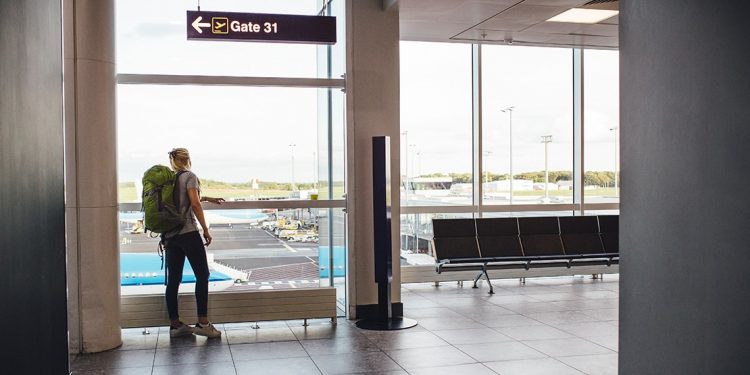What Parents Should Know About Their Young Adult Going Backpacking
They Are Going to Be Fine
Your young adult has just told you they plan on going backpacking alone for the first time. So now you are in a state of panic thinking about all of the possible dangers in the great big world out there.
Worrying is only natural — you care about your children and you always want to make sure they are safe.
Travel is a life-changing experience and if your young adult dreams of seeing the world, this adventure will allow them to learn and grow in incredible ways. You may be concerned, but here are some important things you should know if your young adult is going backpacking.
Encourage Them to Do Their Research
You can’t protect your child from every potential danger that might befall them, but you can arm them with knowledge to help them protect themselves. The more research your young adult does before they go, the more they will be prepared for whatever happens.
Taking the time to read a backpacking guide will help them know what to expect from their trip as well as understand what information will be useful for them to learn beforehand. Most travel scams and dangerous situations arise when travelers are unaware and unscrupulous people take advantage of this ignorance.
Help your child research the country before they go in as many ways as possible. They should know the common scams to watch out for, which neighborhoods to avoid, what common customs to be aware of and how to avoid potential dangers such as local animals or extreme weather conditions.
Not only does research come in handy for knowing what to expect while they are overseas, it’ll help them in getting there at all. If they are going to be backpacking for an indefinite amount of time and weren’t planning on buying a return ticket right away, there are some one-way international flight problems they should be aware of.
Knowing about those ahead of time will ensure their trip starts off as smoothly as possible. This is one of the most important backpacking tips I can give from my own experience.
Lastly, don’t take for granted the art of how to pack a backpack. Packing lightly and ordering things properly in your bag will save you a lot of trouble (and possibly even physical pain) while you’re on your journey.
Help Them Make an Emergency Plan
Before your young adult leaves, help them make a plan for what they will do if the entire thing goes wrong and they find themselves penniless and stranded. This is unlikely to happen if they have done their research and planned ahead — but it never hurts to be prepared.
Encourage them to save up an emergency fund that has enough money for a plane ticket home, then keep it in a separate account they cannot access while traveling. If it really comes to it, they can rely on their emergency fund to get them back home when they have reached the end of the road.
As part of an emergency plan they should also purchase travel insurance before they go. This will cover them if anything happens, from an accident to lost luggage to a flight cancellation.
Make sure they read the fine print and choose the policy that is right for their trip.
Keep in Touch, but Not Too Much
There are many ways you can stay in touch with your young adult, including Skype, Facebook, Whatsapp and email. Using a cell phone overseas is also a viable option, if you consider the pros and cons of extending coverage on their current plan versus getting a new plan once in their destination.
The technological part of being in contact is easy, it’s the emotional side that is hard.
Many parents try to stay in daily contact with their kids while they travel, which can sometimes be unrealistic. Your young adult is busy having thrilling experiences and with so many things happening every day and so many new friends to talk to they might not call you as frequently as you might like.
The key is not to take this personally. It’s not that your child doesn’t love you — they are just living out their travel adventure and are caught in the moment.
They might even be somewhere in a small village in Indonesia where the electricity cuts out for several hours per day so they couldn’t Skype you even if they wanted to. Also, consider the fact that talking to you every day might make your child feel more homesick, more detached from their life abroad and less invested in their experiences.
Moving to New Zealand can be exciting because it is such a beautiful country, but you still have to take careful measures in planning your move.
Trust Them
Your child tells you they want to go traveling alone for the first time, do you start constantly worrying about all of the things that will go wrong? I know you probably mean, “I care about you and I want you to be safe.”
However, sometimes to your young adult it sounds like, “I don’t think you are capable of doing this and I think you are going to mess it up.” This can be incredibly frustrating to a young adult and it can make them feel like you don’t believe in them.
It’s normal to be worried, but try to take a step back and keep your worries to yourself. You’ve raised a smart and capable child, so have faith in them and trust that they will be able to handle the challenges of traveling.
For more on this, read this article about what happens when we doubt the abilities of our young adults and how we can encourage them instead (one of my favorite articles on family and raising children).
Live Your Own Life
The stage in life when the kids grow up and leave the nest can be hard. You have spent the last 18 or so years investing your time and energy into the well-being and growth of someone, then they are suddenly on the other side of the world traveling around by themselves.
It can be hard to adjust.
However, before you start to suffer from empty nest syndrome, look at it this way: the fact that you have raised a child who is adventurous, brave, resourceful and capable enough to go traveling is something to be proud of. Your healthy bird has wings of their own, so pour yourself a glass of wine, sit back on the deck and give yourself a pat on the back.
Now it’s time to enjoy the next stage of your life and spend more time on your own hobbies and interests. You could take up yoga, write a book, go fishing, join a dance class or even plan a trip of your own.
Follow in your child’s footsteps and try something new, so you will both have new stories to share when you see each other again.







